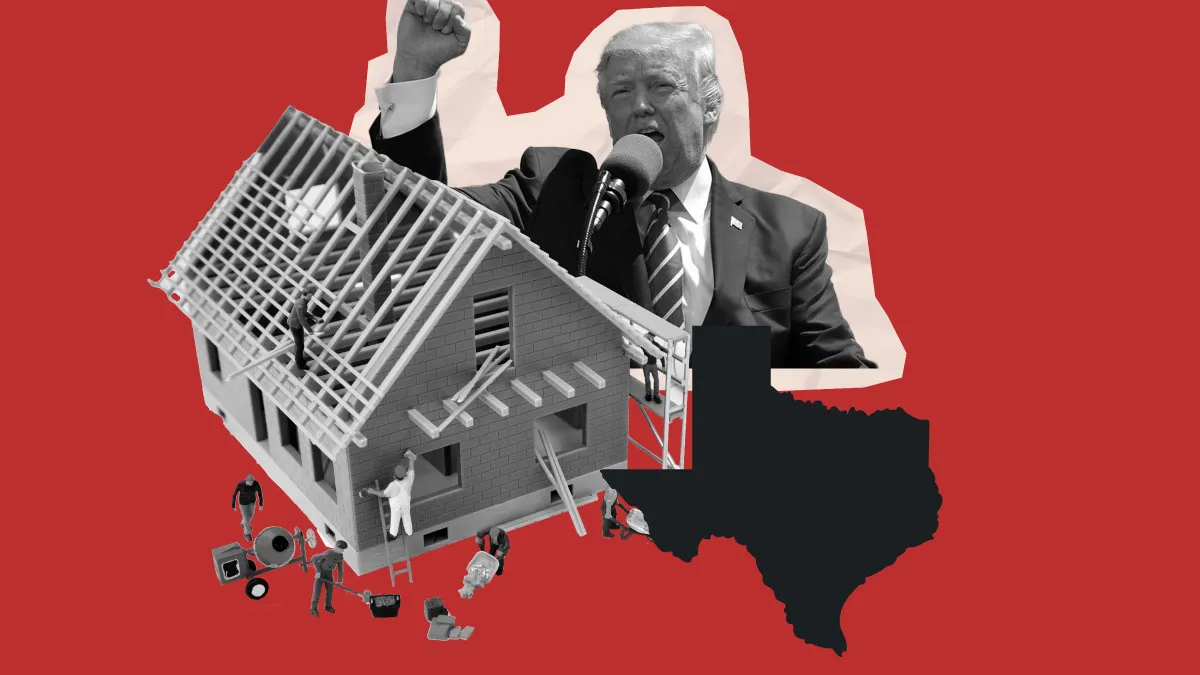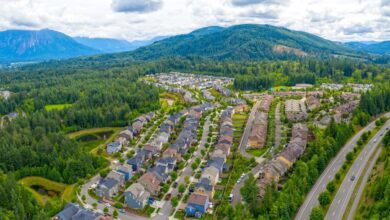Trump’s mass deportation plan could be ‘devastating’ for housing

The plan of newly elected President Donald Trump deport Millions of undocumented immigrants could threaten one of the few bright spots in housing construction in recent years: the construction of new homes. Mass deportations are said to have recently hit homebuilders and others in the construction industry with labor shortages Redfin report found that immigrants make up about 30% of the construction workforce, nearly half of whom are undocumented.
Gary Acosta, co-founder and CEO of the National Association of Spanish Real Estate Professionals (NAHREP) sees trouble ahead.
“It will have a negative effect, and perhaps a devastating effect, on the construction workforce in markets across the United States,” Acosta said. “The construction industry has long been dependent on migrant workers, and this is well documented. They’re talking about coming into workplaces and doing sweeps in those markets. We know this will impact the workforce of people who are on the margins, perhaps even in the process of officially obtaining their status.”
Rising mortgage rates have pushed sales of new homes to outpace sales of existing homes as builders have been able to buy rates down to lure buyers – a key factor in an increasingly unaffordable housing market. A significant change in the labor force could offset that advantage.
Acosta said fears of mass deportations will make things difficult for construction companies retain labor and hiring new workers as new jobs become available. And Acosta says it doesn’t stop at the housing and construction industries.
“It’s going to be the restaurant industry, the hospitality industry… I think the unfortunate part is that immigration has been framed in a very emotional way as a social policy issue, where people talk about crime and murders and all these supposed things that immigration has created, which I think most of it is incorrect in my opinion,” he shared. “People don’t think of it as an economic problem. They see it as a matter of social policy. And if they look at it from a purely economic standpoint, I think their opinions would be different than what they are.”
Acosta says he looked at the issue from a mathematical perspective: “Math has no opinion,” he jokes. In the context of low housing stock and already low unemployment, mass deportations will make matters worse.
“It will take years, if not decades, to retrain our workforce for this [job] holes. There are currently approximately 11 million open unfilled jobs in the United States, and the only way those jobs can be filled is through smart immigration. It won’t happen because of new births, it won’t happen because people just sit on the sidelines. We have a labor shortage, and exacerbating this shortage is not the right solution,” he said.
Stephen Kim, senior managing director and head of the Housing Research Team at investment firm Evercore ISIregularly speaks to housebuilders and says there is “no doubt whatsoever that this could be a major factor in housing production by 2025”.
Kim added that while contractors sometimes need to ensure that everyone on their team is a documented citizen, no one he has spoken to is confident that illegal immigrants won’t find their way to those job sites. “Additionally, everyone I’ve talked to believes that there is a meaningful number – not like 1 or 2%, but a meaningful number – of workers in the industry who are undocumented. Maybe they’re not working on their house, but they’re out there working on something.”
Kim says that at the same time, large-scale deportations will not have a major impact on housing demand. “Immigrants tend to live in large households, and it is the household that takes up the housing stock… I don’t want to sound too insensitive here, but if you had a household of seven people and two of them are deported, you would There are still five people who need to live somewhere,” he said.
But, Kim acknowledged, everything depends on what actually happens once Trump is in power, meaning that no builders he has spoken to have concrete plans to pull back from their current construction work or be more cautious.
“If you saw the authorities taking a liking to a construction or housing site and actually rounding up immigrants, I think the news would spread pretty quickly, and you’d see a lot of workers being very careful about showing up to work the next time. day,” said Kim. “I don’t think you’ll find that people will just network, quit and never come back. I think they have to work, but they will be very careful… there [might] It will be a period where you won’t have them, but it will still cause delays.”
Mass deportations would hit housing in some states harder than others. A recent one NPR article noted that Texas – a housing hotspot – had more than half a million immigrants in the construction industry by 2022 and nearly 60% of that workforce was undocumented, double the national figure. Ironically, Texas state officials did already committed 1,400 acres of state land to house a new deportation facility if Trump wants it.




